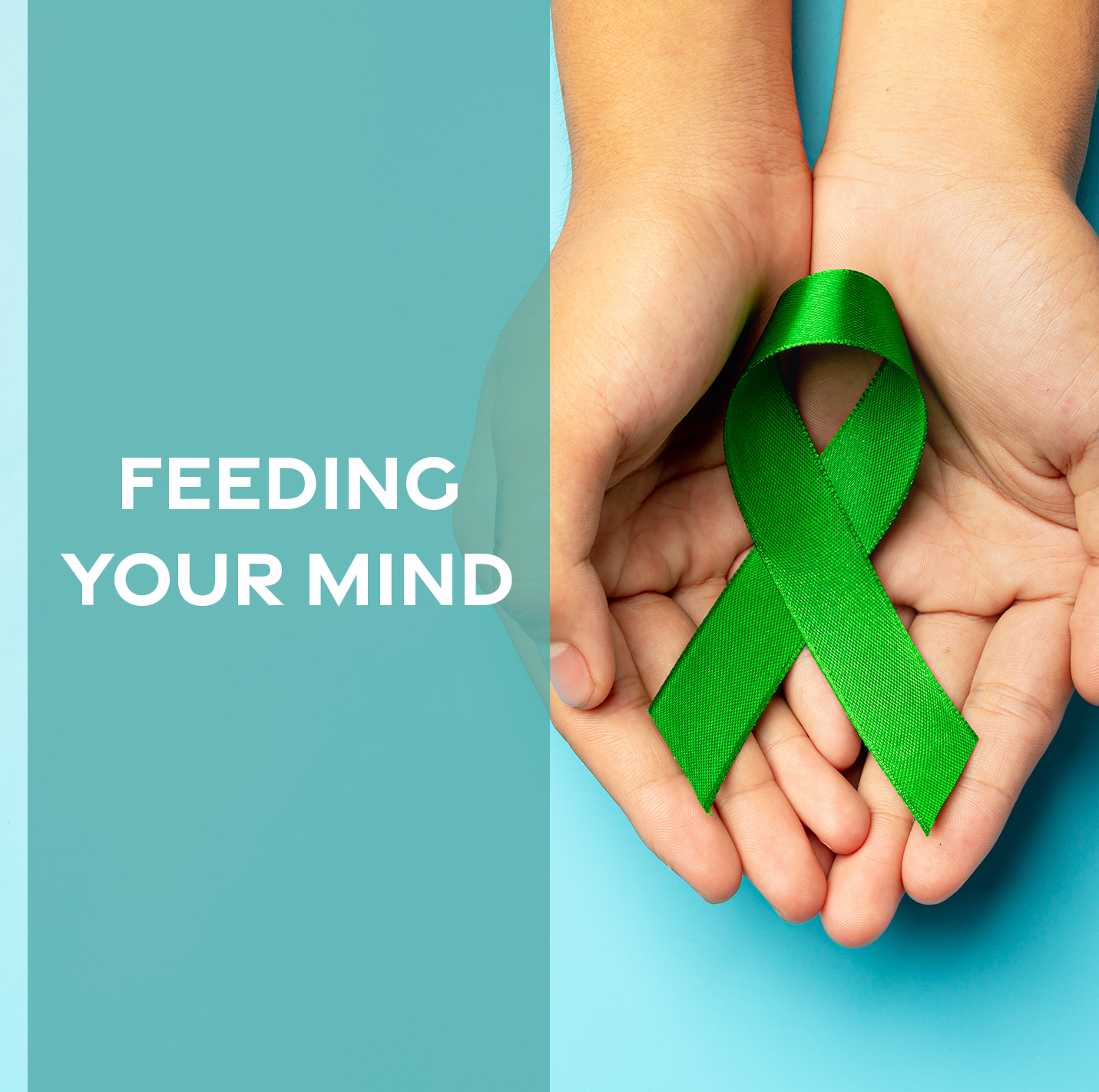May is Mental Health Awareness Month, a time to reflect on the importance of mental well-being and raise awareness about the steps we can take to nurture our minds.
Mental health is incredibly complex, shaped by a variety of factors such as genetics, life experiences, brain chemistry, and social environments. It encompasses more than just the presence or absence of mental illness—it’s about how we manage emotions, cope with stress, and maintain balance in our lives. Mental health conditions can range from common challenges like anxiety and depression to more severe disorders like bipolar disorder and schizophrenia. Research shows that approximately 1 in 5 adults in the U.S. experiences some form of mental illness each year, yet less than half receive the treatment they need. What’s more, untreated mental health conditions can affect every aspect of life, from relationships to work performance, and often co-occur with other health issues. This highlights the importance of taking a holistic approach to mental health, incorporating factors like nutrition, lifestyle, and access to care for a more comprehensive approach to well-being.
The relationship between mental health and nutrition is powerful, undeniable and bidirectional, meaning that not only can what we eat impact our mental well-being, but our mental health can also influence our eating habits. While we often focus on physical health, mental health deserves just as much attention, especially when it comes to the powerful connection between what we eat and how we feel. Nutrition plays a vital role in supporting brain health, and simple self-care practices can make a world of difference in maintaining mental balance.
In honor of Mental Health Awareness Month, let’s explore the nutrition and self-care strategies that can help you prioritize mental health and well-being. Whether you’re managing stress, battling anxiety, or simply striving for emotional balance, the following tips can empower you to take action for a healthier mind.
Fuel Your Brain with Nutrient-Dense Foods
While no single nutrient can magically “fix” brain health, certain nutrients play a key role in supporting optimal brain function and overall mental well-being. These nutrients are essential for maintaining healthy brain structures, neurotransmitter production, and cognitive function over time, but they work best as part of a balanced, healthy lifestyle. Here are some nutrients that are important for brain health:
- Omega-3 Fatty Acids: Found in foods like fatty fish such as salmon, walnuts, and flaxseeds. Omega-3s help support cell membrane structure and communication in the brain. They’ve been linked to improved cognitive function and a reduced risk of depression.
- B Vitamins: B6, B12, and folate (B9) are crucial for the production of neurotransmitters that regulate mood and mental clarity. They can help with memory and energy levels, but they don’t offer instant mental boosts. Good sources include leafy greens, whole grains, eggs, and legumes.
- Magnesium: This mineral helps regulate stress and promotes relaxation. Magnesium has been shown to help with sleep quality and anxiety. It can be found in foods like spinach, almonds, and pumpkin seeds.
- Antioxidants: Nutrients like vitamin C, vitamin E, and flavonoids found in fruits and vegetables (especially berries, citrus, and leafy greens) protect the brain from oxidative stress, which can contribute to cognitive decline.
Remember, these nutrients are not a cure-all but incorporating these nutrient-rich foods into your daily meals can help create a more stable and resilient mood, helping you better manage life’s challenges.
Why Is This Even a Thing?
Protein plays a vital role in supporting a range of bodily functions. As one of the building blocks of life, protein is essential for the growth, repair, and maintenance of tissues, including muscles, organs, and the brain. They are composed of amino acids which are the precursors for neurotransmitters such as dopamine, serotonin and norepinephrine which regulate mood, sleep motivation and concentration. A deficiency in protein or amino acids can lead to imbalances in these neurotransmitters, contributing to mood swings, anxiety, depression, or difficulty focusing. Including lean protein sources like chicken, turkey, tofu, beans, and lentils in your meals can help maintain stable blood sugar levels, preventing mood swings and providing sustained energy.
Stay Hydrated for Optimal Mental Clarity
Hydration is often overlooked but it has an important role in regulating the production of neurotransmitters. Even mild dehydration can lead to fatigue, headaches, poor concentration, irritability and reduced mental clarity, negatively impacting one’s emotional state. Also dehydration can activate the stress response, leading to an increase in cortisol, the body’s primary stress hormone, which further exacerbates feelings of anxiety or tension. Aim to drink plenty of water throughout the day. Herbal teas, like chamomile or peppermint, can also be soothing and promote relaxation.
Practice Mindful Eating
When we say nutrition impacts mental health, it isn’t just about what you eat—it’s also about how you eat. Practicing mindful eating can reduce stress and improve digestion, allowing your body to fully absorb the nutrients you’re consuming. Slow down, savor each bite, and listen to your body’s hunger cues. Mindful eating can also foster a deeper connection to your food and increase gratitude for the nourishment it provides.
Incorporate Movement into Your Daily Routine
Exercise has long been known to have a positive effect on mental health. It boosts the production of endorphins, which are natural mood enhancers. Regular physical activity, whether it’s a brisk walk, yoga, or dancing, can reduce stress and improve sleep quality. Even just 20 minutes of movement a day can have a profound impact on your mental well-being.
Consider Professional Support
If you’re struggling with mental health challenges, it’s important to seek professional help. A registered dietitian, therapist, or mental health counselors, can provide personalized guidance and support to help you develop healthy coping strategies and improve your overall mental well-being.
Nourish Your Mind, Body, and Soul
Mental health is a complex and multifaceted aspect of our well-being, but nutrition and self-care are two powerful tools we can use to support our mental and emotional health. Remember the food we consume doesn’t just fuel our body; it fuels our mind, highlighting the importance of making mindful, nourishing choices to support mental well-being. By nourishing your body with the right foods, staying hydrated, moving regularly, and practicing mindfulness, you can foster a positive relationship with your mind.
This Mental Health Awareness Month, take the opportunity to prioritize self-care and make small, yet significant changes that will benefit both your body and your mind for years to come.

